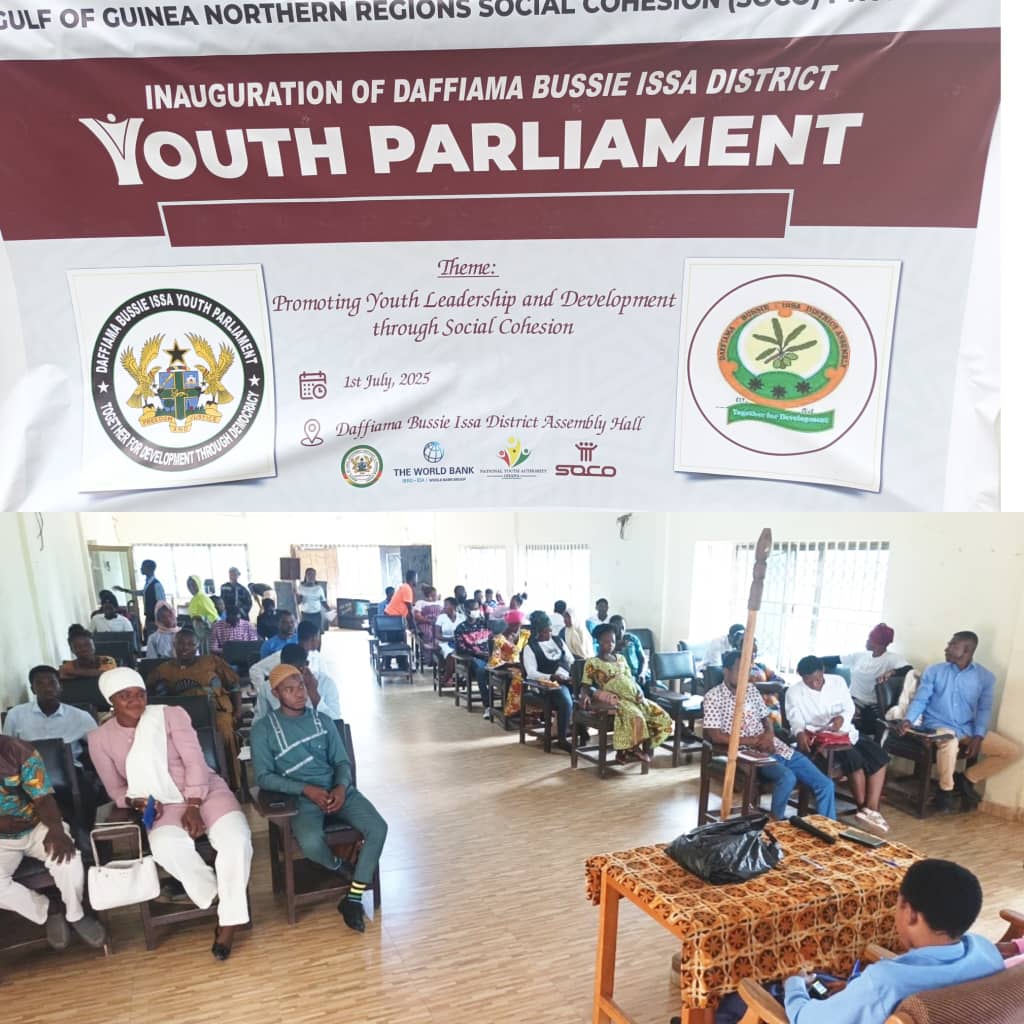The Daffiama-Bussie-Issa (DBI) District on Tuesday, July 1, 2025, proudly inaugurated its maiden Youth Parliament.
This District Youth Parliament, modelled after Ghana’s Parliament, is a vital initiative designed to enhance youth participation in decision-making processes across the nation.
The inauguration attracted key representatives from the National Youth Authority (NYA), traditional authorities, assembly staff, youth groups, and other influential stakeholders. This event was a significant highlight of the Gulf of Guinea Northern Regions Social Cohesion (SOCO) project.

The inaugural session, themed “Promoting Youth Leadership and Development through Social Cohesion,” set the tone for the impactful work ahead.
Sarah Banogeku, the District Youth Coordinator at the NYA, emphasised the importance of this initiative as a powerful platform for young people to advocate for policies and programs that directly support their development.

She asserted that this platform will not only educate the youth on parliamentary procedures but also unify them around common goals for the betterment of DBI.
“The Youth Parliament concept fosters volunteerism an essential element of youth development,” she declared.
James Baba Anabiga, the Speaker of the Upper West Regional Youth Parliament, presented a compelling paper addressing the serious issue of drug abuse among the youth.
He insisted that young people must seize the Youth Parliament initiative to drive positive change and lead their communities toward a brighter future.

On his part, the District Chief Executive for Daffiama-Bussie-Issa, James Wor, wholeheartedly endorsed the Youth Parliament, affirming his commitment to its sustainability.
He called on members to regard the forum with the seriousness it deserves to effectively articulate their needs.
We recognised the profound significance of youth engagement in sustainable development, expressing confidence that this platform will forge future leaders and inspire responsible civic participation, an imperative for long-term community growth.







